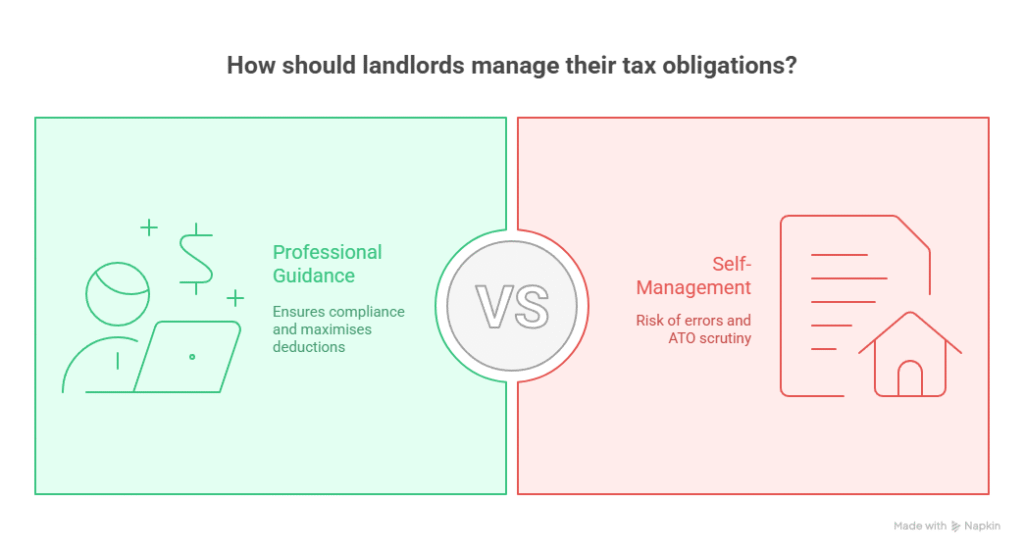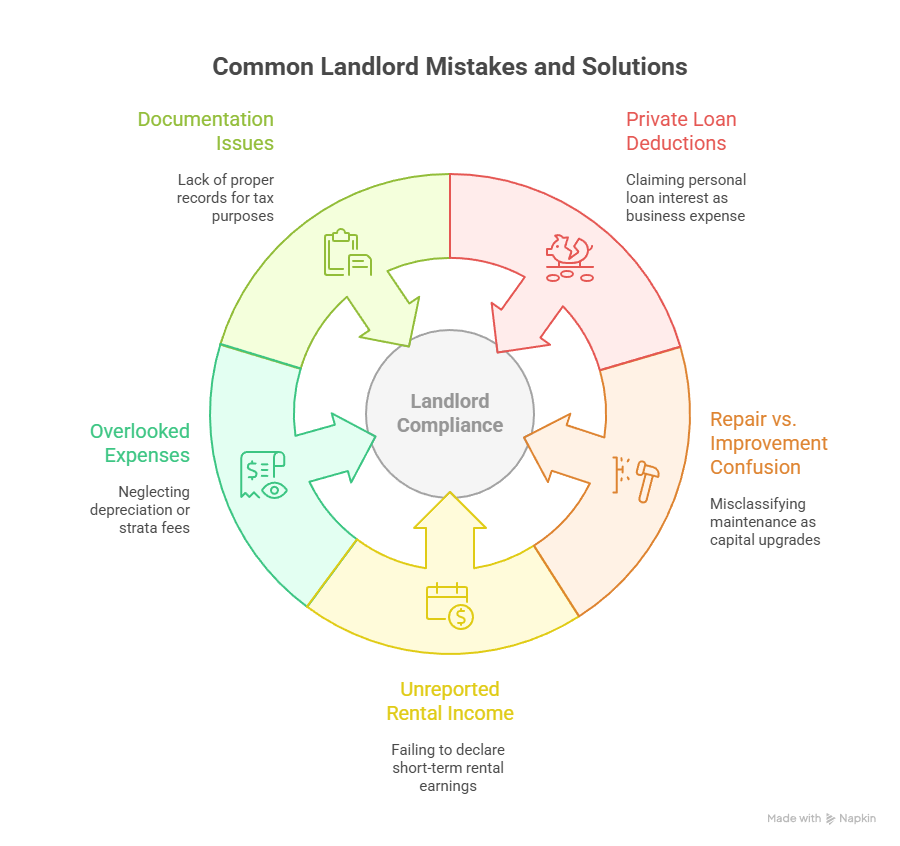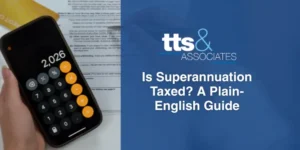Investing in property can be financially rewarding—but Australian landlords also face complex tax obligations. A skilled property accountant can ensure you’re meeting all ATO requirements while maximising your deductions. This guidance is especially valuable in a tax environment where the Australian Taxation Office (ATO) actively scrutinises rental property claims. In fact, most rental property owners make errors on their tax returns, according to the ATO (ato.gov.au).

Working with a property-focused tax expert can help you report income accurately, claim every eligible expense, and avoid costly compliance mistakes.
Accurate Reporting of Rental Income and Expenses
One of the most common tax issues landlords face is failing to properly report rental income and deductions. A property accountant will ensure your income is declared correctly and that you’re claiming every tax-deductible cost you’re entitled to.
What Counts as Rental Income?
Rental income includes more than just the rent your tenants pay. Your accountant will ensure you correctly report all types of income, including:
- Traditional long-term rental income
- Short-term stays (e.g. Airbnb earnings)
- Reimbursements from tenants
- Insurance payouts (e.g. for lost rent)
- Bond money you retain to cover damage or unpaid rent
Missing any of these can result in incorrect tax returns and potential penalties.
What Deductions Can You Claim?
Here are the main types of expenses a property accountant will help you deduct:
1. Interest on Loans
Only the interest portion of your mortgage for investment properties is deductible—not the principal. If you’ve redrawn from the loan for personal use, your accountant will apportion the interest correctly so you don’t overclaim.
2. Repairs vs. Improvements
Fixing a broken heater or repairing plumbing damage are typically deductible in the year incurred. But capital improvements—like renovating a bathroom—must be depreciated over time. Your accountant will distinguish these for you so the claims are lodged correctly.
3. Depreciation Deductions
You can depreciate the value of your investment property’s assets over time, including:
- Appliances and whitegoods
- Furniture provided with the rental
- Capital works (the building structure itself)
Many accountants will recommend a depreciation schedule prepared by a qualified quantity surveyor. This document lists all depreciable assets, ensuring you’re claiming maximum deductions within ATO rules.
4. Ongoing Holding Costs
The following expenses are typically deductible:
- Property management fees
- Council and water rates
- Insurance premiums
- Body corporate or strata levies
An accountant will ensure your claims reflect the latest rules—for instance, since 2017, travel expenses to inspect your property can no longer be claimed if you’re an individual landlord.
Capital Gains Tax (CGT) Planning for Property Sales
Selling an investment property can trigger a significant capital gains tax liability. However, proactive planning with a property accountant can reduce your tax burden.
Determining Your Cost Base
Your property’s cost base includes more than the original purchase price. It also covers:
- Stamp duty
- Conveyancing and legal fees
- Renovations and capital improvements
- Selling costs like advertising and agent fees
By maintaining good records, your accountant can accurately calculate your capital gain or loss.
Timing and Discounts
If you’ve held the property for over 12 months, you’re usually entitled to a 50% CGT discount. Your accountant can help plan the timing of your sale—for example, deferring settlement until after June 30 to push the tax into the next financial year.
If you sell at a loss, your accountant will ensure it’s recorded properly so it can offset future capital gains.
Exemptions and Partial Main Residence Use
In some cases, a partial CGT exemption may apply if you lived in the property for part of the ownership period. Your accountant will assess your eligibility and apply the correct calculation method.
Staying Compliant with Evolving Tax Laws
Australian tax law for property investors has evolved significantly in recent years. Your property accountant plays a key role in ensuring you remain compliant as rules change.
Record-Keeping Requirements
The ATO can audit landlords years after the original lodgment date. Your accountant will guide you on what records to keep, including:
- Invoices and receipts
- Bank and loan statements
- Rental income summaries
- Strata and insurance documents
They can help you establish systems or apps to maintain accurate records.
Correct Ownership and Income Splitting
If you co-own property with a partner or other investors, income and deductions must be split based on your legal ownership share (e.g. 50/50). Your accountant ensures your tax returns reflect this accurately and align with ATO data-matching protocols.
Common Mistakes Landlords Make
ATO reviews show that landlords often:
- Claim deductions for private loan use
- Confuse repairs with capital improvements
- Fail to report short-term rental income
- Overlook depreciation or strata expenses
- Don’t keep proper supporting documentation

A qualified property accountant helps you avoid these errors and respond to any ATO queries with confidence.
When to Seek Property Tax Advice
You don’t need to wait until tax time. Engage a property accountant:
- When you purchase an investment property
- Before starting short-term letting like Airbnb
- Before and after a property sale
- When refinancing or redrawing on a loan
- When you’re planning renovations or major repairs
- To navigate ownership changes (e.g. adding a spouse)
Proactive advice throughout the year ensures you’re positioned for tax efficiency—not just scrambling in June.
Get Professional Help to Maximise Tax Efficiency
For more insights on getting the most from your tax return (including property-related claims), read our article How a Tax Return Accountant Maximises Your Refund – or contact us for a chat.
General information only – seek professional advice before acting.




